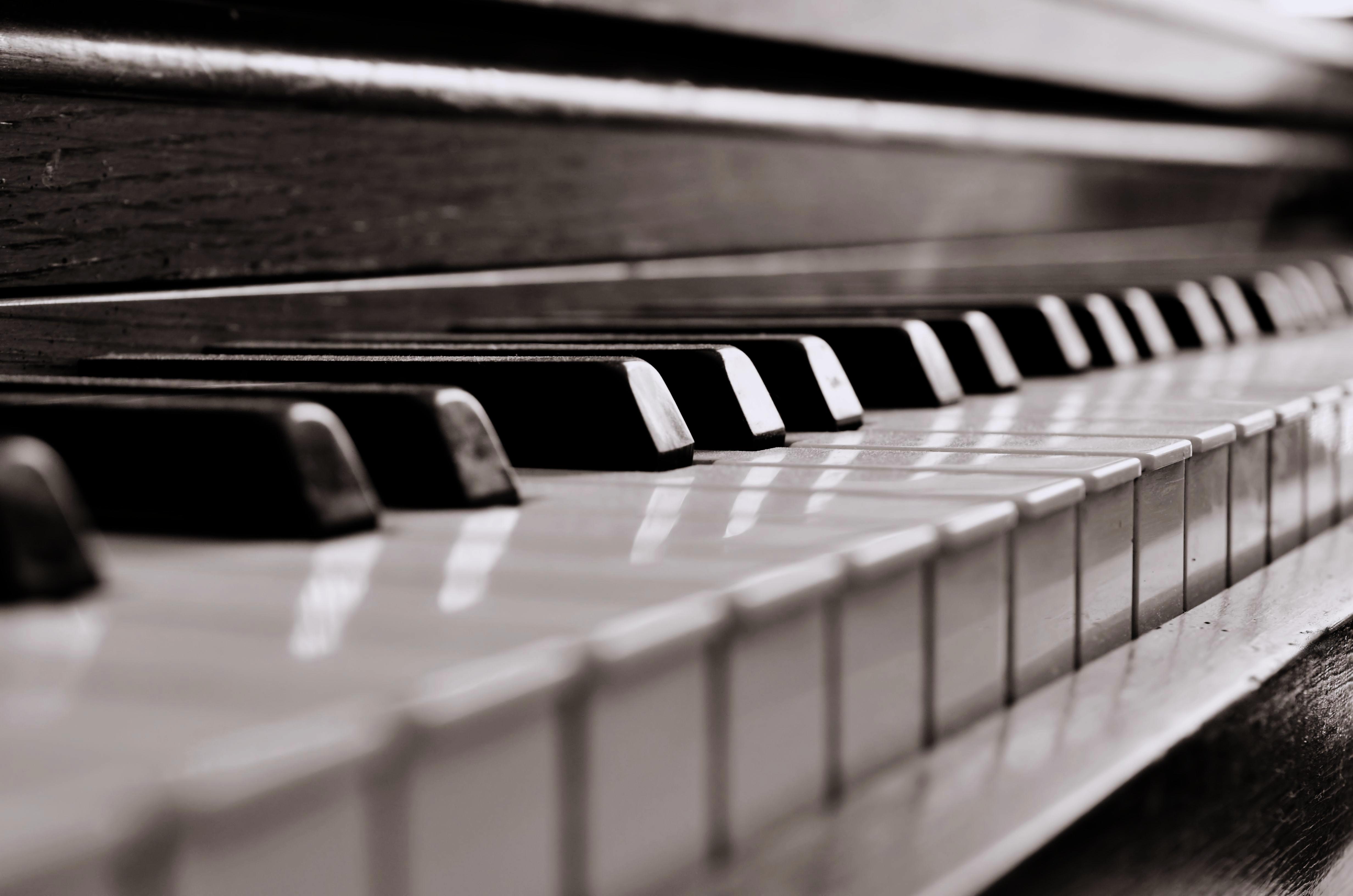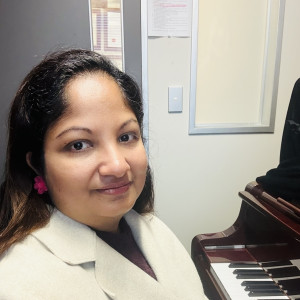Whatever the reason (professional or hobby), it’s difficult to define what “perfect” is.
Nothing is perfect. But it’s not the philosophical concept we’re interested in here. That’s a question for another day.
We're more interested in choosing the perfect piano!

What Is a Perfect Piano?
This is a commonly asked question.
Instead of looking for the “perfect piano”, start looking for the perfect piano for you. What's right for one person won’t be right for another.
There are a few things you should think about before choosing your piano.
What will help you most in terms of playing better? With so many piano brands, how can you decide whether to go with Yamaha pianos, a Casio piano, a Kawai piano, or even a Steinway & Sons piano?
That’s why I’m going to tell you my thoughts on this beautiful-yet-complex instrument to give you a better idea of what to look for.
Hopefully this advice will help you choose the right piano.
Have you ever wondered how big a piano really is?
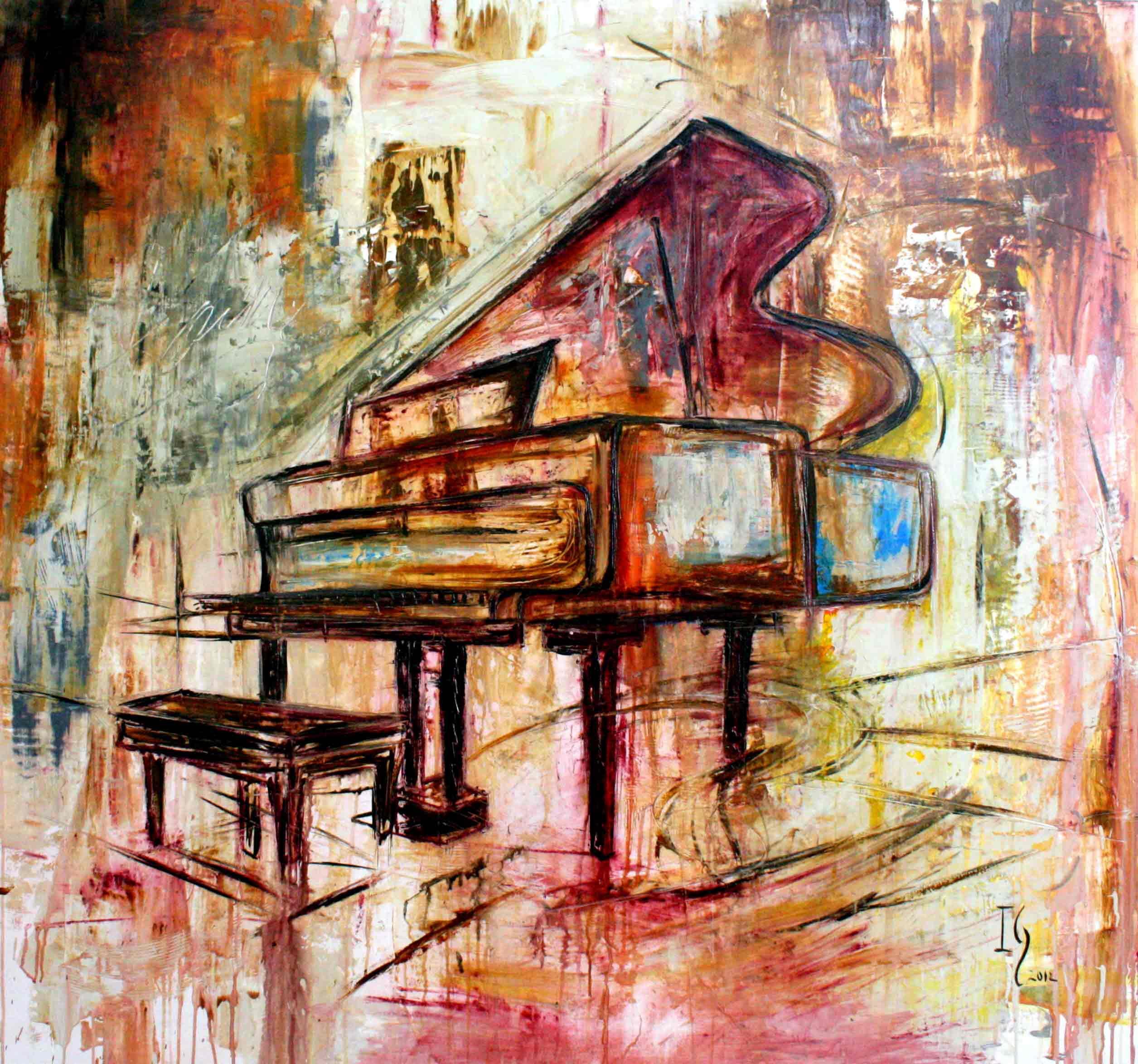
What You Need to Take Into Account
A piano includes several parts which form a mechanism. It’s important to know about the mechanism when you’re buying a piano. Knowing what they’re made of can help you narrow down your options and choose the piano that’s best for you. It’s very easy to know which parts you should be looking at.
The Pedals
Whether there’s one sustain pedal, like most electronic pianos, or three like you'd find on an acoustic piano (an upright piano or a grand piano), a piano has to have pedals.
You haven’t learned how to play the piano properly unless you’ve mastered using the pedals, coordinating your hands and your feet, and exploiting the various effects these pedals can give you.
If you get the chance, you should definitely test the speed, precision, and comfort of these pedals before you buy.
A bad pedal can have a negative effect on your piano playing. Don’t ever forget to consider the pedals when buying your piano.
Discover our best tips for buying your first piano!
The Keyboard
It may seem obvious when choosing a piano to consider the piano keyboard. There are several types of keyboard and the number of keys can vary.
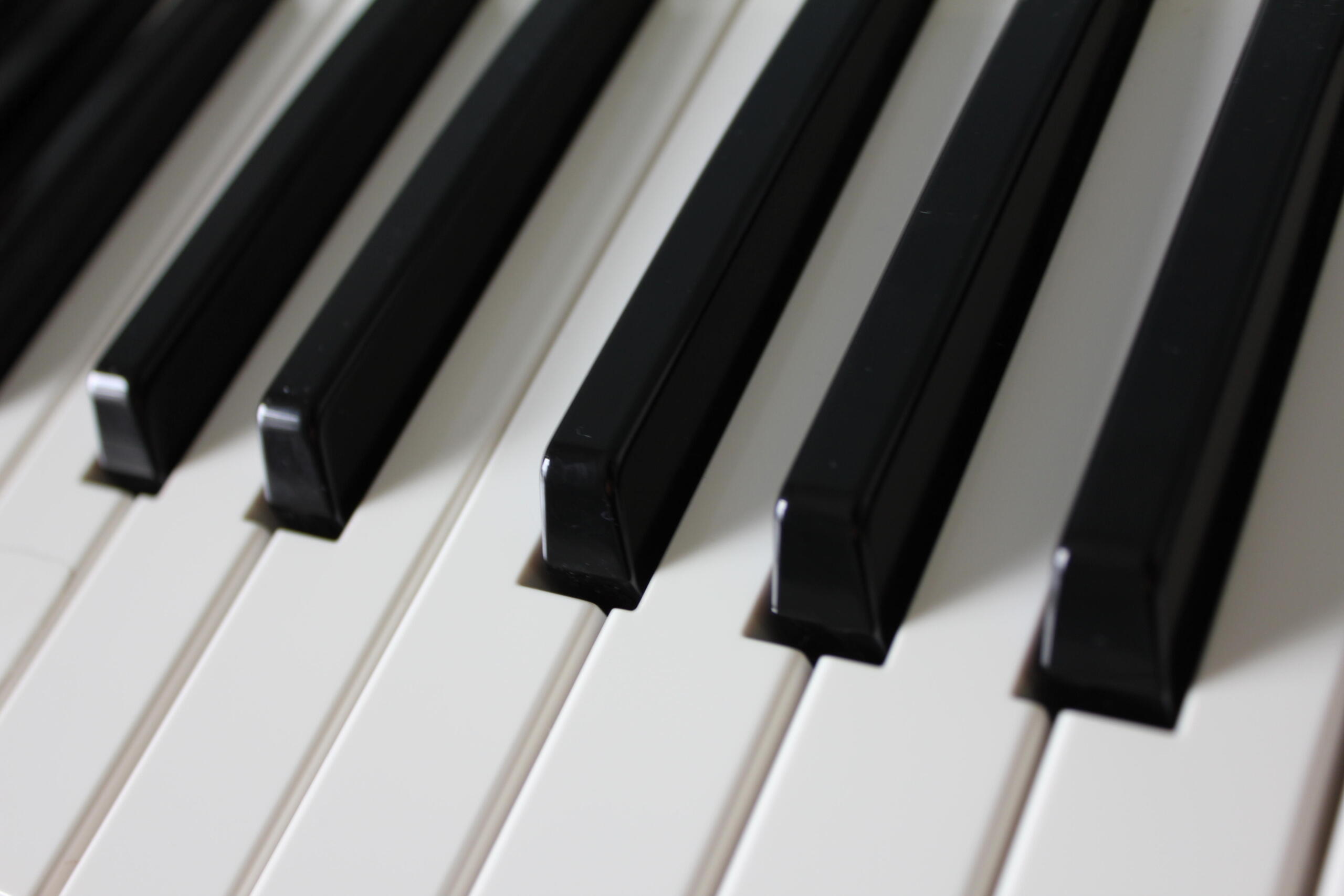
It’s the keys themselves that really make the difference. Depending on how you like to play, you’ll have to choose between a light or heavy set of keys. This basically means whether the keys are easier to press down or not.
If you're an absolute beginner you might even consider not opting for weighted keys. In this case, you'll need to ask your piano dealer about “keyboards” rather than pianos.
Quick tip: If you’re starting out, you should be should be looking for a lighter action. These keys are easier to press down and generally more forgiving (but less expressive) when it comes to playing.
Join the discussion: is the piano a complete instrument?
The Music Rack
This is the last thing you have to check. You need somewhere to put your sheet music without it being a nuisance when you’re playing.
There’s nothing more annoying for a pianist than having to struggle with their music because the music rack doesn’t suit them.
Scrambling through the pages is always a pain and while it may seem like a minor detail, it’s a minor detail you can’t ignore. The music rack is an indispensable accessory for any piano player.
When it comes to playing the piano, just like any other talent, it’s the details that will make the difference between improving and stagnating.

The Last Things to Check before Making your Decision
Once you’ve looked at a few pianos and started narrowing down your options, you need to move to the second step. This step includes things that you have to know about the piano before you can make your decision.
You’ve seen what you need to be checking for. This step includes a few must-know tips and tricks.
You need to be aware of the different types of pianos available to budding pianists (electronic pianos, uprights, or grands).
This will help choosing the piano that’s best for you. A bit of research before buying can pay dividends, especially in the case of those just starting out or those wanting to learn how to play the piano.
There are plenty of websites with information where you’ll find all the info you’re every going to need.
Don’t forget to consider where you’ll put your piano. It’d be a horrible shame to buy a wonderful piano then have nowhere to put it.
You need to also think very carefully about your budget and how much you’re going to pay for your piano.
How expensive is a piano, really?
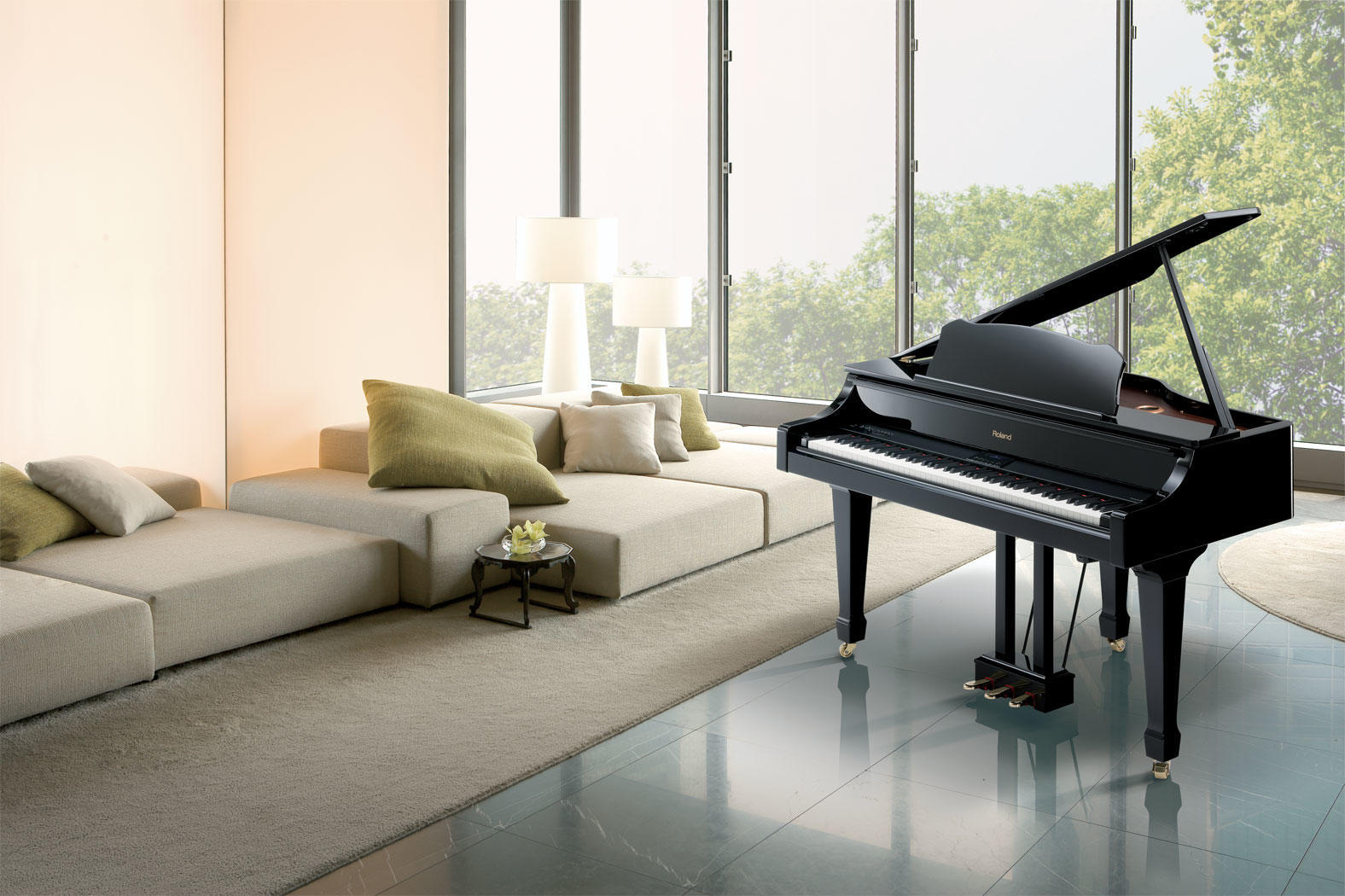
You should consider buying from a specialized music store or piano store where there’s always a chance to haggle the price of any piano for sale.
Finally, think about how long you’re going to have this piano. Is it a medium-term or long-term purchase?
You also need to be aware of what your piano-playing goals are, too.
A skilled and experienced concert pianist won’t have the same wants and needs as someone just playing piano for fun. You need to think about how often and for how long you’ll be using your instrument. You don’t buy a piano in the same you’d buy a pair of shoes!
Find out what essential accessories every piano player should have!
piano lessons near me, you should ask for advice from your piano teacher. As an experienced musician, their opinions should be taken very seriously. You could even take them to the store with you when the time comes to buy your piano. Don't have a piano teacher yet? Or, you do but s/he can't help you? Instead of searching for piano lessons near me online, talk with Superprof's piano tutors! Don’t forget you can also ask the opinions of the staff working in the music stores themselves. Those working in music stores aren’t like your stereotypical greasy used car salesmen. This is because they’re usually passionate about music. If you’re passionate about something, you tend to be pretty knowledgeable about it. Talk to them! That way you’ll never feel lost, even if you are just starting out. Find out about piano lessons Derby here. One More Thing for Choosing Your Perfect Piano When it comes to choosing your perfect piano, there aren’t any right answers. Is this the piano of your dreams? (Source: URWallpapers) You have to be patient, organized, and informed. I’ll say it again: buying a piano is a huge investment. It’s a long-term investment. You therefore have to take everything into consideration. If you’re learning how to play, you should probably be looking at used pianos rather than brand new ones. However, if you’re going to be using it a lot and turning pro, then a brand new piano might be right for you. Before starting your research, make sure you’ve carefully worked out your budget. Though sometimes you just have to go with your gut. You have to make sure that playing remains an enjoyable activity. A musician has to be proud of their instrument: the look, sound, and the feel. Don’t forget to try before you buy. Try them out as much as you can (consider playing the same song on each one for a fair comparison) and give yourself an idea of why one piano is better than another. You can only try out the pianos in a real store and not when buying on-line. There’s another important decision you need to make. How much will all the “extras” cost? There are a number of them that you’ll need: A piano bench or stool, a metronome, a lamp, piano music, etc. Thinking about just the piano itself isn’t enough. You need to consider everything. I’d also recommend avoiding pianos with wooden frames. Let me explain why... Wood ages and wears. You also need to frequently polish and varnish it and if you don’t, it can harm the sound of your musical instruments. So avoid old wooden pianos! If you’re not going to buy a digital piano, you'll have to consider the cost of tuning. While the piano’s a beautiful musical instrument, it’s also a bit of a diva and requires a piano technician to come around once or twice a year to get it tuned. Piano tuning isn't cheap, either! Choosing an instrument that’s going to be with us most of our lives is a huge decision. You have to take it seriously. In fact, you should be asking yourself how your piano is going to be used: To learn how to play? For piano tutorials? For music theory? To learn to play with the left hand? For practicing chords? Which learning method is going to be used? For basic music lessons? Once you’ve found your perfect piano, you’ve got the ball rolling. You’ll start progressing thanks to one key fact: you enjoy it. This is what will make you an accomplished and well-rounded musician. Now discover everything you need to know about buying a piano...
Summarise with AI:

